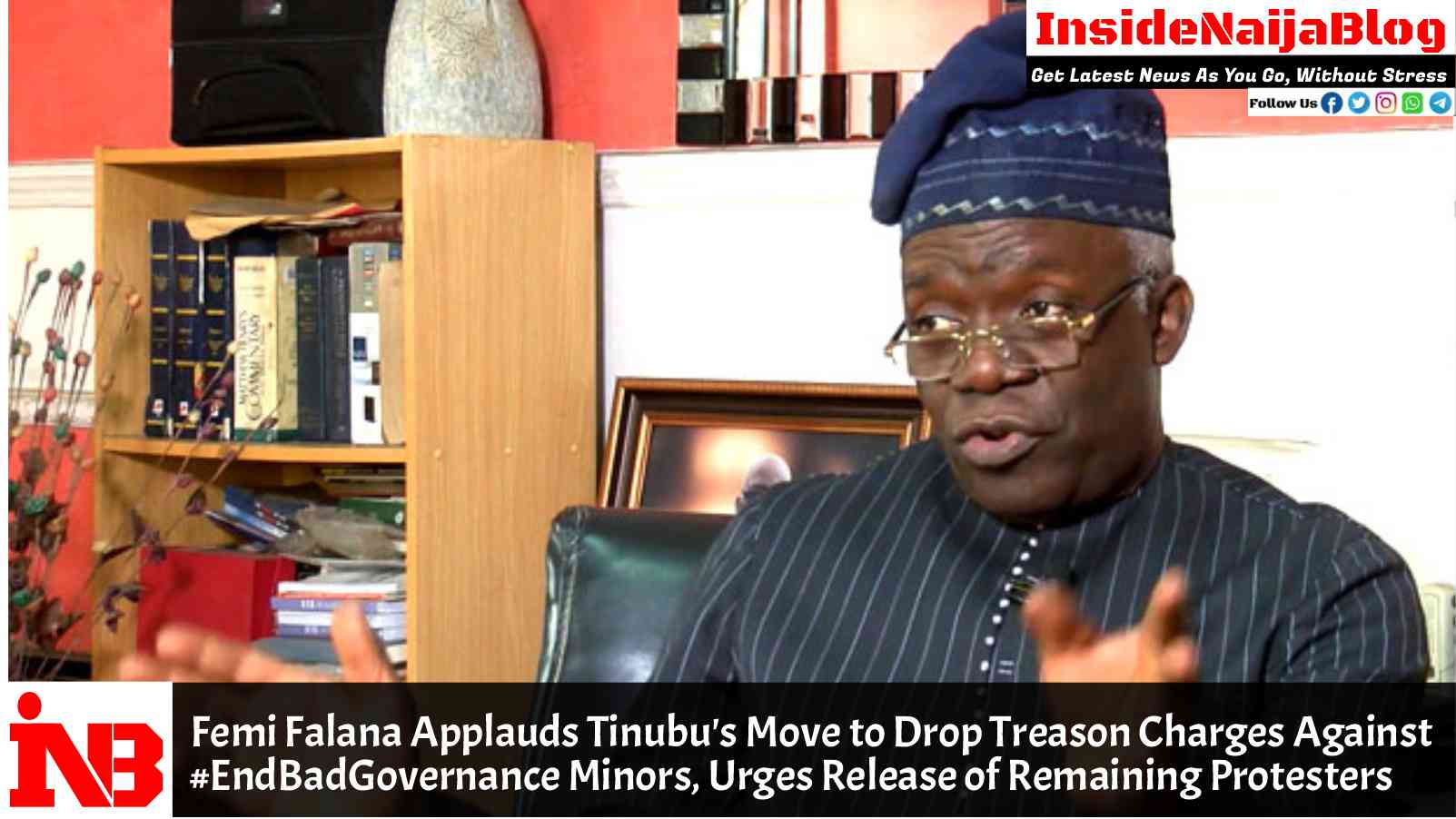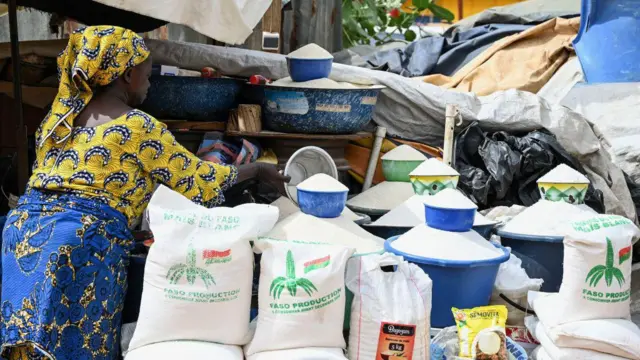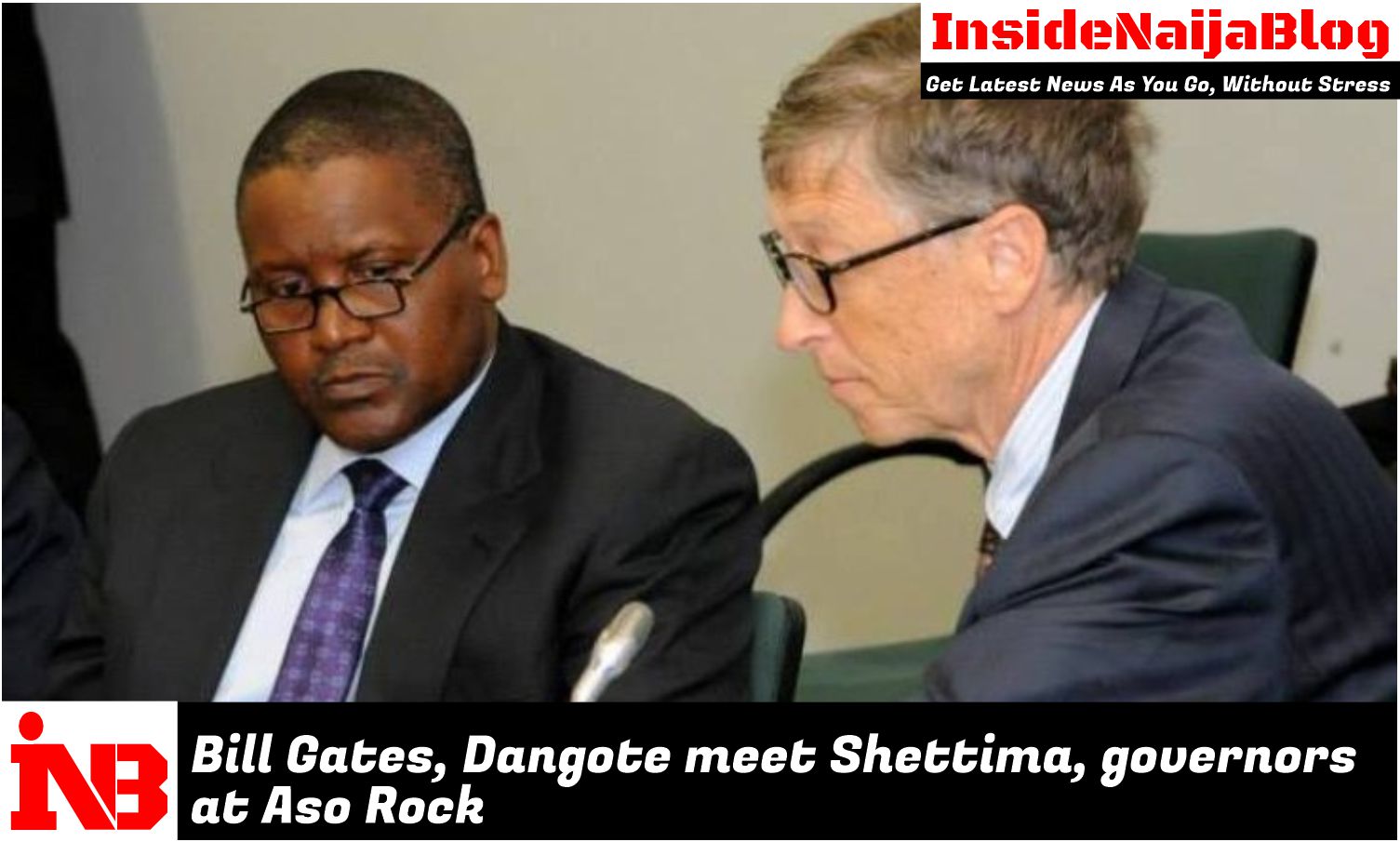Human rights advocate and Senior Advocate of Nigeria (SAN) Femi Falana has praised President Bola Ahmed Tinubu for directing Attorney-General and Minister of Justice, Mr. Lateef Fagbemi SAN, to drop treason charges against minors arrested for their involvement in the #EndBadGovernance protests. Falana, however, believes that releasing only the detained minors is insufficient. He called on the Attorney-General to extend this gesture of leniency to all remaining protesters who were detained for allegedly engaging in what authorities classified as subversive activities.
In a statement shared with Vanguard, Falana emphasized that dismissing charges against the minors was a positive first step, particularly considering the damaging impact prolonged detention could have on their futures. Yet, he urged Mr. Fagbemi to take the additional, necessary step of discontinuing the cases against the 101 adult protesters still facing charges, arguing that the accusations lack sufficient evidence and undermine the government’s integrity.
“Following President Bola Tinubu’s directive to withdraw the treason charges against malnourished children, it is anticipated that Attorney-General Mr. Lateef Fagbemi will formally discontinue the baseless charges by filing a nolle prosequi application at the Federal High Court,” Falana remarked. “The Attorney-General should go a step further by dismissing the charges against the remaining 101 detained protesters, as no credible evidence substantiates the charge of treason against them, stemming from last August’s #EndBadGovernance protests.”
Falana outlined the prosecution’s weak basis for the charges, noting that the alleged “evidence” intended to support the treason allegations consisted of items such as Russian flags, fire extinguishers, prepaid electricity meters, arrest letters, and written statements from the accused. Falana described the prosecution’s case as “deeply flawed” and expressed concern that it would expose the government to public ridicule if presented in court, underscoring the discrepancy between these items and the severity of treason charges.
Falana argued that continuing with such cases against peaceful protesters damages Nigeria’s reputation as a democratic state. “The charges were leveled in the aftermath of legitimate protests, where individuals voiced their opposition to governance issues—a right enshrined in our Constitution,” he stated. “Using such a harsh legal classification like treason only discredits the credibility of the justice system and sets a dangerous precedent for criminalizing civil rights.”
Falana’s statement reflects wider concerns among activists, who argue that the right to peaceful protest is critical for a functional democracy. He noted that Nigerians, especially young people, are becoming increasingly disillusioned with governmental responses to dissent. Detaining these protesters, he suggested, is only escalating tensions within society and fueling skepticism towards authorities.
Additionally, Falana warned that prosecuting young people under a treason charge could traumatize and stigmatize them for life, creating lasting negative impacts on their personal and professional prospects. He also highlighted that, in the long term, such cases could strain Nigeria’s already overwhelmed judicial system.
The human rights lawyer concluded by emphasizing the importance of addressing social discontent through meaningful dialogue and reforms rather than punitive measures. “This is an opportunity for the government to heal wounds and demonstrate a commitment to democracy,” he said. “By formally discontinuing all charges, the Attorney-General would show a willingness to prioritize unity and respect for constitutional rights, rather than viewing dissent as a threat.”
If Fagbemi heeds this call, it could set a vital precedent for protecting civil liberties in Nigeria, reinforcing that peaceful protests—regardless of the issues being raised—are an integral part of the nation’s democratic framework. Falana’s appeal to the administration to reassess its approach towards dissent is a call for a more compassionate and justice-centered approach that aligns with Nigeria’s democratic ideals.



